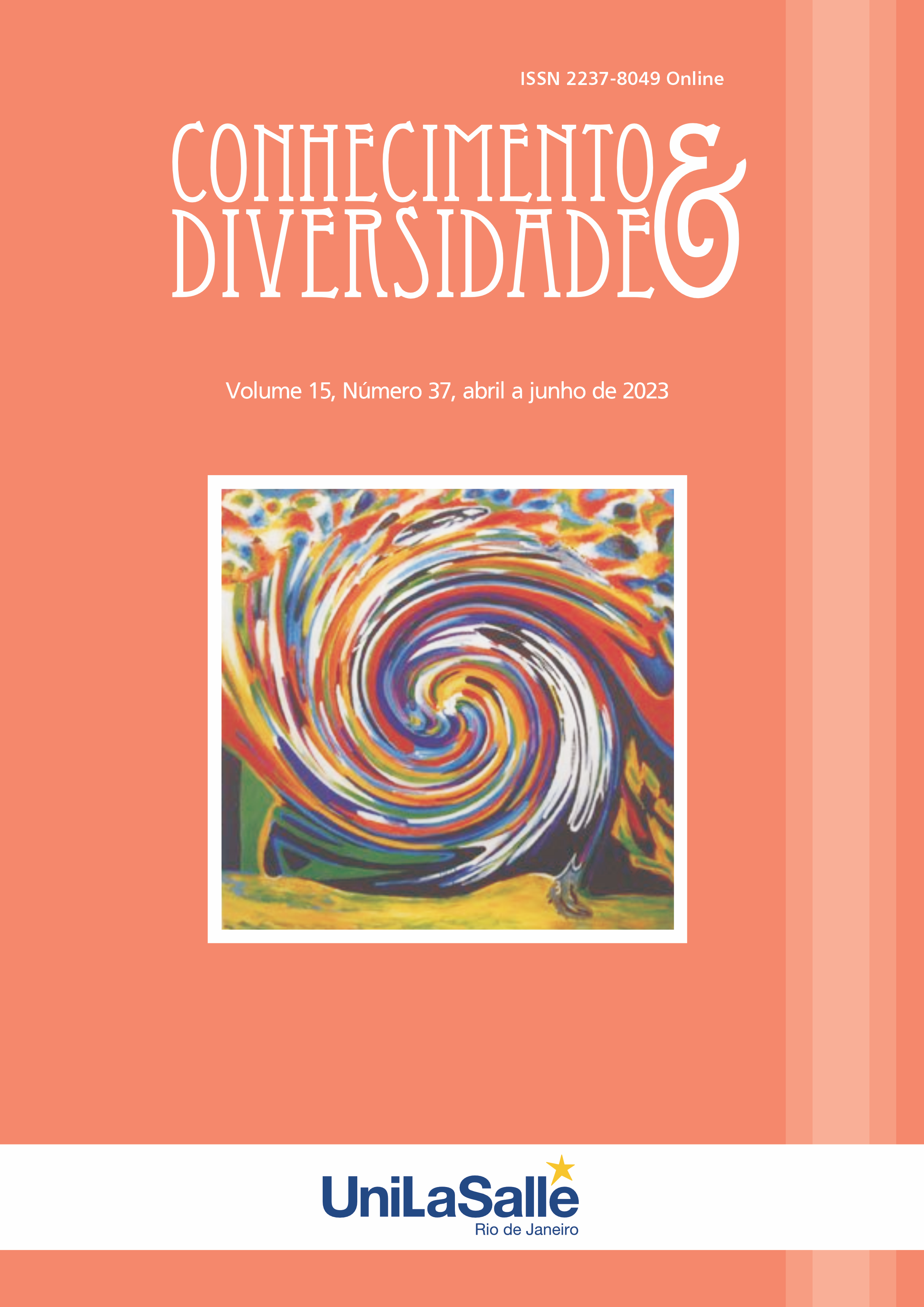FERRAMENTAS INSTITUCIONAIS PARA O DESENVOLVIMENTO DO VOLUNTARIADO
DOI:
https://doi.org/10.18316/rcd.v15i37.10967Palavras-chave:
Volunteer, Charity, Assistance, Methods of Encouragement, People, SocietyResumo
A aplicação do estudo da história e estado atual do voluntariado está condicionada pela presença de alguns problemas sistémicos, como políticos e jurídicos, lucrativos, ambientais e sócio-artísticos, que se refletem a nível global e comunitário. Em países ultramodernos, onde o comportamento e o impacto das esferas destrutivas são complexos e multidimensionais, nem sempre é possível superar esses problemas sem a participação de cidadãos ativos que se engajam em atividades voluntárias. No estágio atual, o voluntariado é uma força social importante pelo número e natureza da condicionalidade, que, juntamente com outras instituições políticas como países, associações interestaduais e supranacionais, determina as políticas e estratégias do futuro da humanidade. Portanto, o artigo visa resumir as disposições teóricas sobre o conteúdo do voluntariado, para realizar uma análise abrangente de seu desenvolvimento histórico e estado atual. Uma tarefa igualmente importante é fundamentar recomendações práticas sobre formas promissoras de desenvolver o voluntariado doméstico, em particular entre os estudantes. No decorrer do estudo, foram utilizados métodos científicos gerais e especiais, que permitiram um estudo abrangente dos aspectos históricos, teóricos e praxeológicos do voluntariado. O método de análise foi escolhido para processar trabalhos científicos sobre o tema da pesquisa. O método de síntese foi utilizado para sistematizar os desenvolvimentos científicos. Além disso, a observação e a generalização permitiram-nos compreender as realidades internacionais e ucranianas identificadas de desenvolvimento do voluntariado. Além disso, a concretização foi aplicada para formular conclusões e propostas específicas com base no material analisado.
Referências
Bekkers, R. (2004). Trust, accreditation, and philanthropy in the Netherlands. Nonprofit and Voluntary Sector Quarterly, 33 (4), 596–615. https://doi.org/10.1177/0899764004269483.
Breeze, B. (2000). The institutionalisation of volunteering: The case of the Royal National Lifeboat Institution. Voluntary Action, 3 (2), 45–60.
Eckstein, H. (2001). The institutionalization of society. In Smelser, N. J. & Baltes, P. B. (Eds.), International Encyclopedia of the Social & Behavioral Sciences (pp. 7674–7677). Elsevier. https://doi.org/10.1016/b0-08-043076-7/02411-3
Evers, A. & Laville, J. L. (Eds.). (2004). The third sector in Europe (2nd ed.). Edward Elgar.
Fowler, A. (2005). The role of reputation in nonprofit organizations: The ethical implications of proposed disclosure rules. Nonprofit and Voluntary Sector Quarterly, 34 (2), 205–223. https://doi.org/10.1177/0899764004270011.
Haski-Leventhal, D. & Meijs, L. C. P. M. (2011). The volunteer process model: Organizational barriers and personal motives of volunteers. Voluntas: International Journal of Voluntary and Nonprofit Organizations, 22 (4), 773–794. https://doi.org/10.1007/s11266-011-9198-6.
Murphy, J. (2013). The institutionalization of volunteering. Voluntary Sector Review, 4 (2), 239–254. https://doi.org/10.1332/204080513X666173.
Nazarchuk, O. M. (2022). Protection of human rights: current state and problems of implementation. "Actual problems of jurisprudence". Issue 2 (30). P. 19–23. Ternopil. http://app.wunu.edu.ua/wp-content/uploads/2022/06/2-2022.pdf.
Plant, R. W. (1996). Volunteerism as institutional work. Nonprofit and Voluntary Sector Quarterly, 25 (3), 319–339. https://doi.org/10.1177/0899764096253007.
Putnam, R. D. (2000). Bowling alone: The collapse and revival of American community. Simon and Schuster.
Smith, D. H. & Stebbins, R. A. (Eds.). (2014). The Palgrave handbook of volunteering, civic participation, and nonprofit associations. Palgrave Macmillan. https://doi.org/10.1057/9781137294675.
Smith, D. H. & Warburton, J. (2007). Volunteerism, institutions, and policy. In Smith, D. H., Stebbins, R. A. & Grønbjerg, J. G. (Eds.), The power of giving: Philanthropy and society in a changing world (pp. 147–162). Indiana University Press.
Wuthnow, R. (1994). Sharing the journey: Support groups and America's quest for community. The Free Press.
Downloads
Publicado
Edição
Seção
Licença
Copyright (c) 2023 Igor Sazonets , Oleh Vivsyannyk , Olena Babiak , Olena Khanina , Petro Fesianov

Este trabalho está licenciado sob uma licença Creative Commons Attribution 4.0 International License.
Conforme recomendado pelo o Public Knowledge Project, a RCD adota para seus artigos uma licença CREATIVE COMMONS: Atribuição CC BY 4.0.
Esta licença permite que outros distribuam, remixem, adaptem e construam sobre o seu trabalho, mesmo comercialmente, desde que lhe dêem crédito pela criação original.
Esta é a licença mais adequada oferecida.
Recomendado para a máxima divulgação e uso de materiais licenciados.



